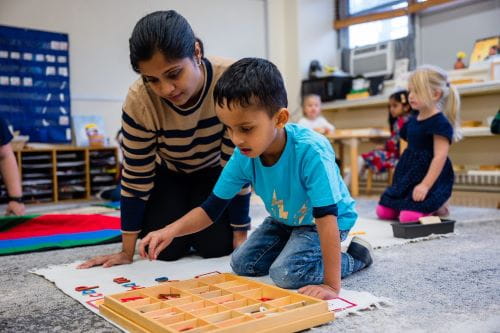Nursery school plays a crucial role in preparing children for kindergarten by laying the foundation for their social, academic, and emotional success
Preparing children for the transition from nursery school to kindergarten is a significant milestone in their educational journey. Nursery school serves as a vital stepping stone that equips children with the necessary skills, knowledge, and social interactions to thrive in kindergarten. In this article, we will explore the crucial role that nursery school plays in preparing children for kindergarten.
1. Social Development
Nursery school provides children with opportunities to develop crucial social skills. It offers a structured environment where they learn to share, cooperate, and interact with their peers. Through playing, taking turns, and engaging in group activities, children develop important social-emotional competencies that are essential for success in kindergarten and beyond.
2. Language and Communication
Nursery school promotes language development and effective communication. Children are exposed to a rich oral language environment, enabling them to expand their vocabulary, express their thoughts, and engage in conversations. Teachers in nursery schools facilitate language acquisition through storytelling, singing, and encouraging children to communicate their needs and thoughts, laying a strong foundation for effective communication in kindergarten.
3. Cognitive Skills
Nursery school focuses on developing cognitive skills, such as critical thinking, problem-solving, and early numeracy and literacy concepts. Through a variety of age-appropriate activities, children are exposed to shapes, colors, numbers, and letters, enhancing their cognitive abilities. These foundational skills acquired in nursery school enable children to approach kindergarten with a solid cognitive framework to build upon.
4. Independence and Self-Confidence
Nursery school provides a supportive environment that encourages children to become independent and confident individuals. They learn to complete tasks and activities on their own, fostering a sense of accomplishment and self-reliance. By gaining independence in tasks like toileting, dressing themselves, and following instructions, children develop a strong sense of self-confidence that prepares them for the more challenging environment of kindergarten.
5. Emotional Resilience
Nursery school plays a crucial role in promoting emotional resilience in children. It helps them develop strategies to regulate their emotions, cope with separation anxiety, and navigate social interactions effectively. In nursery school, children learn to adapt to new environments, manage transitions, and handle conflicts, which prepares them to handle the emotional demands of kindergarten with greater resilience.
6. Familiarity with Classroom Routine
Nursery schools often introduce children to daily routines that resemble those in kindergarten. These routines include circle time, story time, free play, snack time, and structured learning activities. By experiencing a structured schedule similar to kindergarten, children become familiar with the expectations and routines, making the transition smoother and reducing any anxiety or stress associated with starting kindergarten.
Conclusion
Nursery school plays a crucial role in preparing children for kindergarten by laying the foundation for their social, academic, and emotional success. It fosters social development, language and communication skills, cognitive abilities, independence, self-confidence, emotional resilience, and familiarity with classroom routines. Investing in a nursery school education ensures that children enter kindergarten equipped with the necessary skills and confidence to thrive and excel in their educational journey.
Nidhin
For More Details Call: +917510220582
